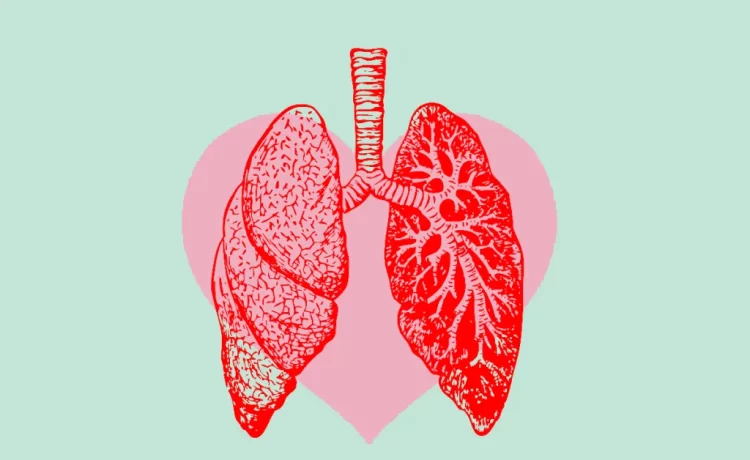In recent years, we have learned valuable lessons about the significance of the air we breathe and the importance of taking care of our bodies. Our discussions often revolve around air quality in our homes, immune system support, and effective sanitization methods to combat germs. However, we tend to overlook our lungs—the primary organ responsible for our respiratory function—along with the surrounding organs and muscles. In the face of ongoing threats from respiratory illnesses such as the flu, COVID-19, and others, it is crucial to prioritize our lung health as part of our overall well-being. The good news is that you may already be incorporating some habits that promote lung health, as they offer additional health benefits. Here are five key practices to help you maintain strong and healthy lungs at all times.
It is also important to remember to practice good hand hygiene, avoid close contact with individuals who are sick, and receive vaccinations for COVID-19, the flu, and pneumonia (if eligible) to further safeguard your respiratory health.
Exercise regularly
Regular exercise plays a pivotal role in various aspects of our health, including the strength of our lungs. According to Albert Rizzo, MD, FACP, chief medical officer of the American Lung Association, our lungs function as a pump that relies on the muscles in our chest cavity. To ensure the optimal functioning of our lungs, it is essential to keep these muscles in good shape.
Cardiovascular exercise is particularly effective in achieving this goal and can be easily incorporated into our daily routine with just 20 to 30 minutes of activity, or by spreading out the equivalent duration throughout the week. “The key is to create an aerobic demand,” explains personal trainer Gunnar Peterson, CSCS, CPT. This can involve activities such as incline walking or incorporating aerobic movements into your strength training routine.
If the prospect of committing to 20 to 30 minutes of exercise every day seems overwhelming, there’s no need to worry. Peterson advises starting slowly and gradually increasing your activity level. Every effort counts, even if it means taking short breaks, like walking around the block for a few minutes in between conference calls. Walking, in particular, is an excellent form of cardiovascular exercise that can effectively target the deeper regions of our lungs, as highlighted by Dr. Rizzo.
Up your vitamin D
Vitamin D is widely recognized for its role in maintaining bone health, but its significance extends to the well-being of our lungs as well. Studies have shown that a deficiency in Vitamin D can lead to impaired lung function and structural changes in the lungs.1 If you find yourself lacking in this essential nutrient, there are various ways to increase your intake. Foods rich in Vitamin D, such as fatty fish, egg yolk, and cheese, can be incorporated into your diet. Additionally, Vitamin D supplements are available, although it’s advisable to consult with your doctor before introducing any new supplements. This is particularly crucial for individuals with respiratory conditions like chronic obstructive pulmonary disease (COPD) or asthma, as they may benefit greatly from optimizing their Vitamin D levels.
Work on breathing
Stress can take a toll on our bodies, including our respiratory system. However, incorporating deep breathing techniques into our daily routine can help alleviate stress and improve lung capacity. Two effective breathing methods are diaphragmatic breathing and pursed-lip breathing, particularly beneficial for individuals recovering from respiratory infections like COVID-19 or managing chronic respiratory conditions.2
By consciously focusing on our breath and practicing techniques such as inhaling and exhaling for a count of four or engaging in belly breathing, we can restore a sense of peace and reduce stress and anxiety, according to Kelley Green, a meditation instructor and mindset coach. She emphasizes that in stressful situations, we often forget to breathe properly. Here are five different breathing exercises you can try to calm your nervous system and enhance your lung function.
Get enough sleep
While the precise connection between sleep and lung health is not fully understood, it is clear that inadequate sleep can harm our immune system as a whole.3 “Although the specific mechanisms are not yet known, we recognize the vital role of sleep in various health aspects, including muscle repair,” explains Dr. Rizzo. Insufficient sleep weakens our immune system, making us more susceptible to respiratory infections. Prioritizing quality sleep is essential for supporting overall lung health and bolstering our body’s defense against respiratory illnesses.
Avoid unhealthy habits
To ensure the long-term health and strength of your lungs, it’s crucial to steer clear of harmful substances and environments. Naturally, smoking cigarettes and vaping are clear no-nos as they significantly compromise lung health. However, it’s also important to be mindful of other potential irritants. Dr. Rizzo advises caution when it comes to exposure to fireplaces and wood-burning stoves, as these can cause irritation in the airways. Furthermore, when engaging in physical activity, it’s advisable to avoid areas with poor air quality or overcrowded spaces where adequate breathing may be difficult. By being conscious of these factors, you can protect your lungs and promote their well-being.






